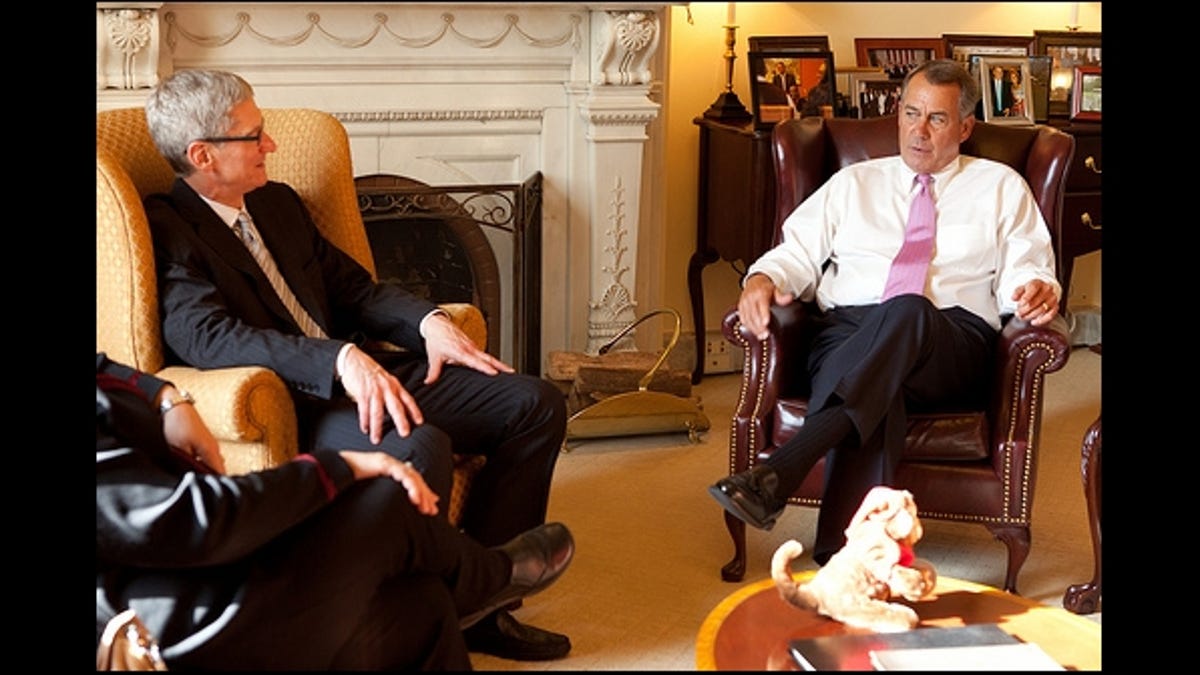Tim Cook gets to know Capitol Hill
In a series of introductory meetings, Apple's CEO sits down with the head honchos of the Senate and House in order to "open up a line of communication."

Apple CEO Tim Cook's visit to Washington, D.C. earlier this month was a chance to have a meet-and-greets with various political leaders on the hill, according to Fortune.
Besides a sit-down with Speaker of the House John Boehner, Cook also met with Senate Majority Leader Harry Reid and Senate Minority Leader Mitch McConnell. He was unable to meet with House Minority Leader Nancy Pelosi because she was out of town on an official trip in Afghanistan at the time.
"It was an act of opening up a line of communication," one aide told Fortune, "but it was a first step in what hopefully will be a growing relationship. They didn't become best buds in one meeting."
This type of intermingling with politicians is something new for Apple -- Steve Jobs was known for standoffishness when it came to politics. Of the tech giants, Apple is known for spending the least amount of money on lobbying. During 2012's first quarter, it spent $500,000 on "political advocacy" while Google spent $5 million.
Although Cook is making this shift toward politics, reportedly no serious issues were discussed and the meetings came with little fanfare. An aide did tell Fortune that Cook, unlike Jobs, "has a strong personal interest in policy issues and recognizes the role an engaged CEO can play in making a difference on those policy priorities."This comes at a time when Apple had been under the gun in Washington for allegedly not paying its fair share of taxes, an e-book price fixing lawsuit brought by the U.S. Department of Justice, and privacy concerns about smartphone apps that could upload geo-tagged photos in the background along with information in a user's address book.

